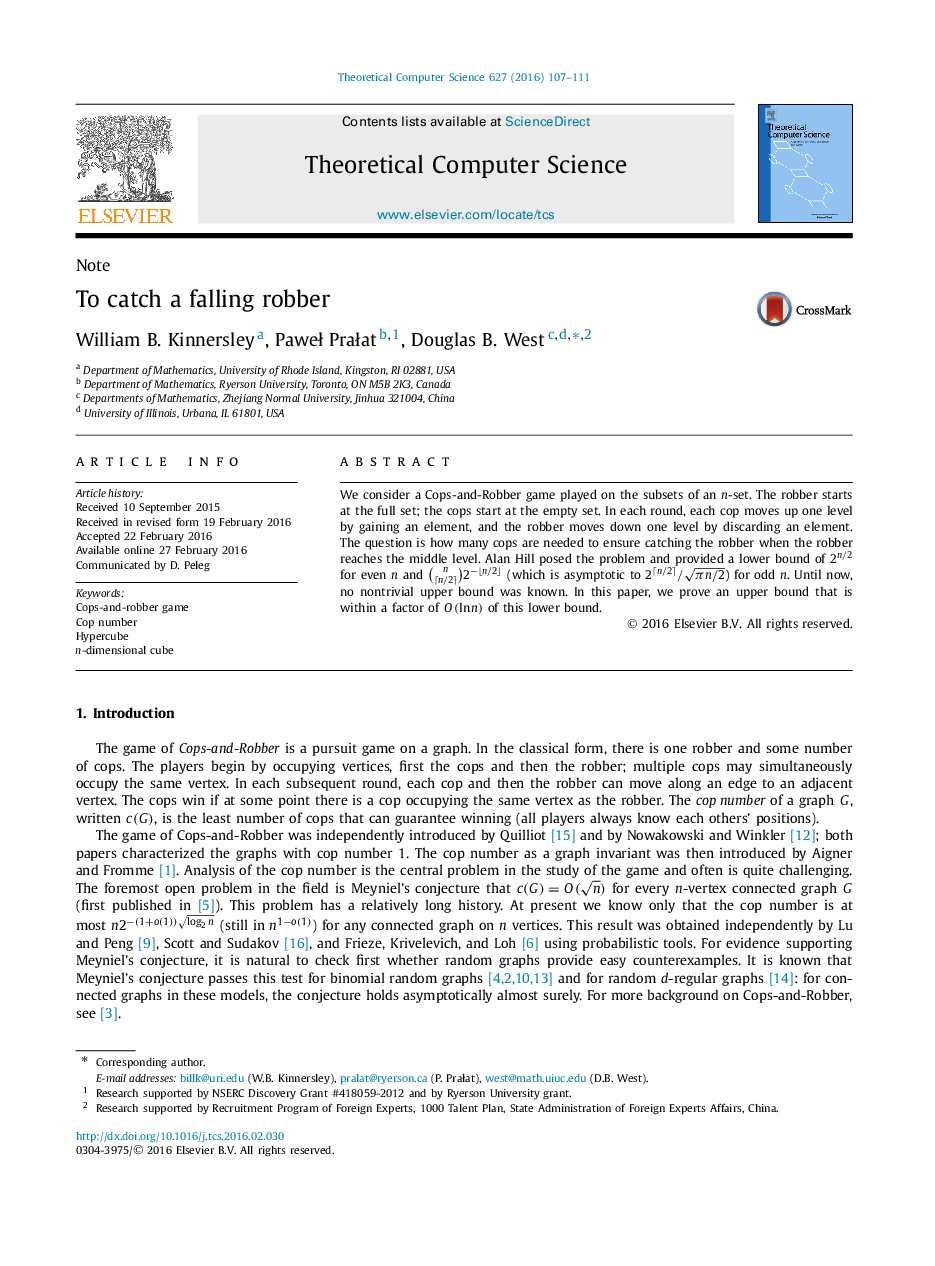| Article ID | Journal | Published Year | Pages | File Type |
|---|---|---|---|---|
| 435332 | Theoretical Computer Science | 2016 | 5 Pages |
Abstract
We consider a Cops-and-Robber game played on the subsets of an n -set. The robber starts at the full set; the cops start at the empty set. In each round, each cop moves up one level by gaining an element, and the robber moves down one level by discarding an element. The question is how many cops are needed to ensure catching the robber when the robber reaches the middle level. Alan Hill posed the problem and provided a lower bound of 2n/22n/2 for even n and (n⌈n/2⌉)2−⌊n/2⌋ (which is asymptotic to 2⌈n/2⌉/πn/2) for odd n . Until now, no nontrivial upper bound was known. In this paper, we prove an upper bound that is within a factor of O(lnn)O(lnn) of this lower bound.
Keywords
Related Topics
Physical Sciences and Engineering
Computer Science
Computational Theory and Mathematics
Authors
William B. Kinnersley, Paweł Prałat, Douglas B. West,
